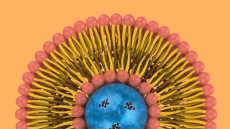Genetic study suggests ‘causal link’ between vitamin D status and blood pressure

An international study examining the relationship between vitamin D status - measured by 25-hydroxyvitamin D (25[OH]D) concentration – and high blood pressure (hypertension) using mendelian randomisation of more than 100,000 people has suggested that low vitamin D may be causally linked to hypertension.
Led by Professor Elina Hyppönen from the University of South Australia, the team noted that there has been ‘considerable’ interest in the role of vitamin D in hypertension, but until now, a direct causal link has not been shown.
Writing in The Lancet Diabetes & Endocrinology, the team added that their data also suggests vitamin D supplementation could be effective in combating some cases of high blood pressure.
"In view of the costs and side effects associated with antihypertensive drugs, the potential to prevent or reduce blood pressure and therefore the risk of hypertension with vitamin D is very attractive", Hyppönen said.
Writing in a linked comment, Dr Shoaib Afzal and Dr Børge Nordestgaard from Copenhagen University Hospital and the University of Copenhagen in Denmark suggested that although the study is 'an important step' towards the description of the role of low vitamin D concentrations in the onset and risk of high blood pressure - "much remains unknown."
"Confirmation of these results in independent, similarly powered studies will be necessary, as will evidence of a corresponding benefit for the prevention of diseases caused by hypertension such as stroke," said Afzal and Nordestgaard.
"Finally, randomised intervention trials will be needed to determine whether vitamin D supplementation can be used to prevent or treat hypertension before such a strategy can be used clinically."
Study details
The new Mendelian randomisation study used genetic data from the D-CarDia collaboration, involving over 146,500 individuals of European ancestry from across Europe and North America. The international team used two common genetic variants that affect circulating 25(OH)D concentrations to measure whether there was a causal effect between vitamin D status and blood pressure and hypertension risk.
For each 10% increase in 25(OH)D concentration there was a drop in diastolic blood pressure (-0.29 mm Hg) and systolic blood pressure (-0.37 mm Hg), and an 8.1% decrease in the odds of developing hypertension, the team found.
"Mendelian randomisation helps to determine cause and effect because by using genetic data we can better avoid confounding, reverse causation, and bias," explained Hyppönen.
"However, because we cannot exclude the possibility that our findings were caused by chance, they need to be replicated in an independent, similarly powered study. Further studies using randomised controlled trials are also needed to confirm causality and the potential clinical benefits of vitamin D supplementation."
Source: The Lancet Diabetes & Endocrinology
Published online ahead of print, doi: 10.1016/S2213-8587(14)70113-5
"Association of vitamin D status with arterial blood pressure and hypertension risk: a mendelian randomisation study"
Authors: Karani S Vimaleswaran, Alana Cavadino, et al













